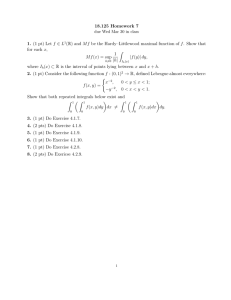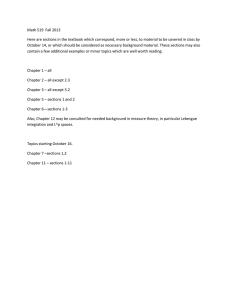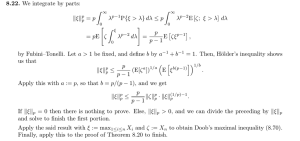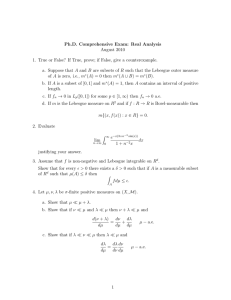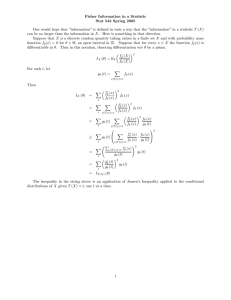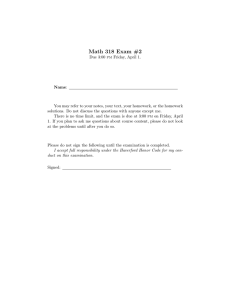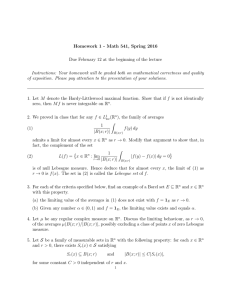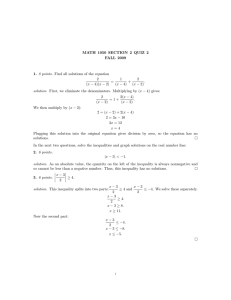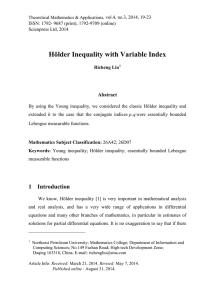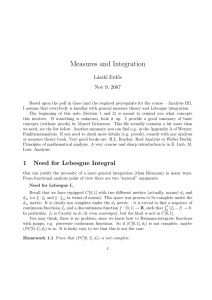Math 617 HW #5
advertisement
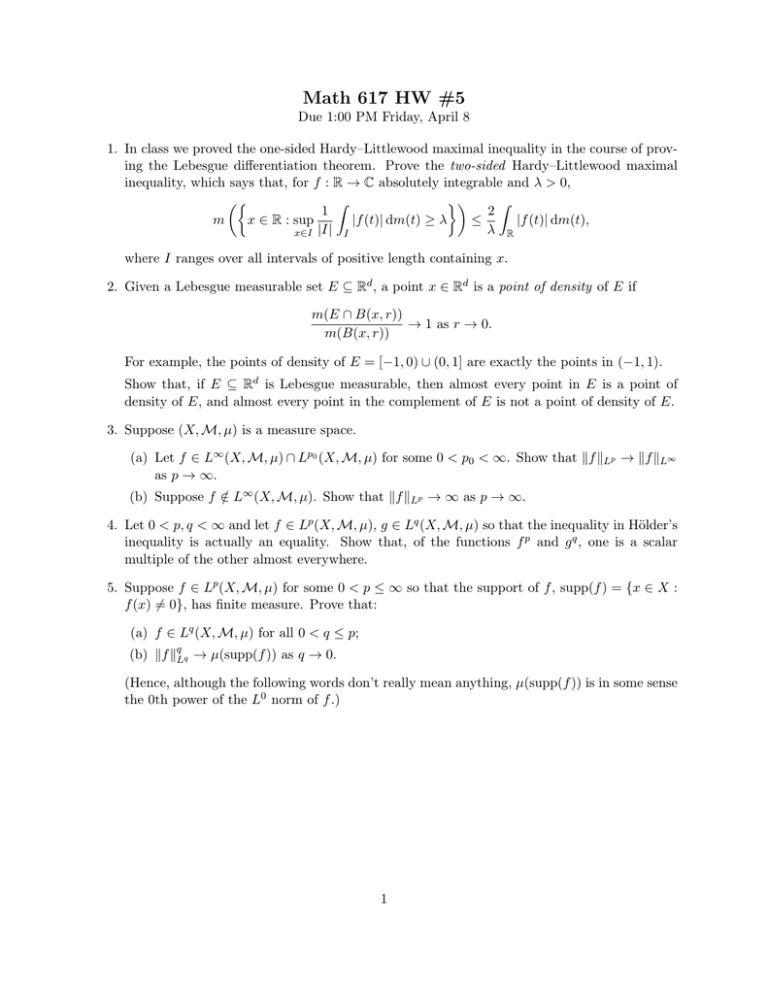
Math 617 HW #5
Due 1:00 PM Friday, April 8
1. In class we proved the one-sided Hardy–Littlewood maximal inequality in the course of proving the Lebesgue differentiation theorem. Prove the two-sided Hardy–Littlewood maximal
inequality, which says that, for f : R → C absolutely integrable and λ > 0,
Z
Z
1
2
m
x ∈ R : sup
|f (t)| dm(t) ≥ λ
≤
|f (t)| dm(t),
λ R
x∈I |I| I
where I ranges over all intervals of positive length containing x.
2. Given a Lebesgue measurable set E ⊆ Rd , a point x ∈ Rd is a point of density of E if
m(E ∩ B(x, r))
→ 1 as r → 0.
m(B(x, r))
For example, the points of density of E = [−1, 0) ∪ (0, 1] are exactly the points in (−1, 1).
Show that, if E ⊆ Rd is Lebesgue measurable, then almost every point in E is a point of
density of E, and almost every point in the complement of E is not a point of density of E.
3. Suppose (X, M, µ) is a measure space.
(a) Let f ∈ L∞ (X, M, µ) ∩ Lp0 (X, M, µ) for some 0 < p0 < ∞. Show that kf kLp → kf kL∞
as p → ∞.
(b) Suppose f ∈
/ L∞ (X, M, µ). Show that kf kLp → ∞ as p → ∞.
4. Let 0 < p, q < ∞ and let f ∈ Lp (X, M, µ), g ∈ Lq (X, M, µ) so that the inequality in Hölder’s
inequality is actually an equality. Show that, of the functions f p and g q , one is a scalar
multiple of the other almost everywhere.
5. Suppose f ∈ Lp (X, M, µ) for some 0 < p ≤ ∞ so that the support of f , supp(f ) = {x ∈ X :
f (x) 6= 0}, has finite measure. Prove that:
(a) f ∈ Lq (X, M, µ) for all 0 < q ≤ p;
(b) kf kqLq → µ(supp(f )) as q → 0.
(Hence, although the following words don’t really mean anything, µ(supp(f )) is in some sense
the 0th power of the L0 norm of f .)
1
